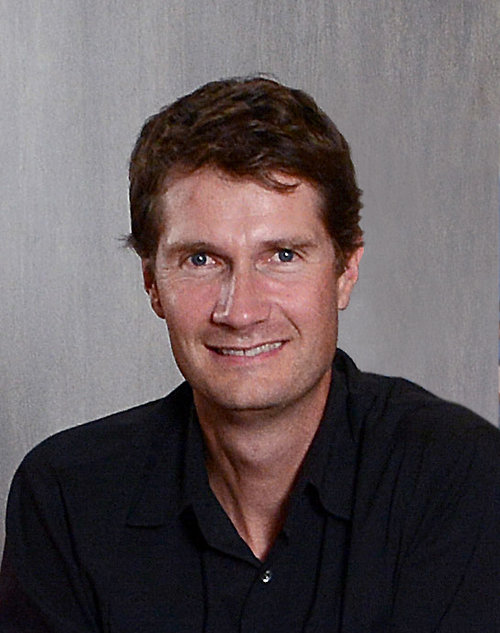iCore seminar by Prof. David Gesbert (EURECOM, Sophia Antipolis, France)
11 February 2016 (Thursday) - from 15:00 to 16:00
Dennis Gabor Seminar Room, 611, level 6, EEE Dept. @ Imperial College
 David Gesbert (IEEE Fellow) is Professor and heads the Mobile Communications Department at
EURECOM, France. He obtained the Ph.D degree from Ecole Nationale Superieure des Telecommunications, France,
in 1997. From 1997 to 1999 he has been with the Information Systems Laboratory, Stanford University. He was
then a founding engineer of Iospan Wireless Inc, San Jose, Ca., a startup company pioneering MIMO-OFDM
(now Intel), before being named a Professor at the University of Oslo, then at EURECOM. D. Gesbert has
published about 250 papers (five of which won paper awards), several patents and guest edited 7 special
issues all in the area of signal processing, communications, and wireless networks. He co-authored the
book "Space time wireless communications: From parameter estimation to MIMO systems", Cambridge Press,
2006. He is the PI behind ERC-Advanced funded research program "PERFUME" on Smart Device Communications.
David Gesbert (IEEE Fellow) is Professor and heads the Mobile Communications Department at
EURECOM, France. He obtained the Ph.D degree from Ecole Nationale Superieure des Telecommunications, France,
in 1997. From 1997 to 1999 he has been with the Information Systems Laboratory, Stanford University. He was
then a founding engineer of Iospan Wireless Inc, San Jose, Ca., a startup company pioneering MIMO-OFDM
(now Intel), before being named a Professor at the University of Oslo, then at EURECOM. D. Gesbert has
published about 250 papers (five of which won paper awards), several patents and guest edited 7 special
issues all in the area of signal processing, communications, and wireless networks. He co-authored the
book "Space time wireless communications: From parameter estimation to MIMO systems", Cambridge Press,
2006. He is the PI behind ERC-Advanced funded research program "PERFUME" on Smart Device Communications.
Seminar Title: "Transmitter coordination in future wireless networks: A decentralized approach"
Abstract: Future wireless networks face serious challenges related to the ever growing popularity
of mobile applications and the increasing diversity of connected objects. Two fundamental approaches, namely
network-centric cloud-based solutions and device-centric solutions, offer conflicting design philosophies to
respond to the challenge. From a decisional and optimisation perspective, device-centric designs rely on the
device's own local intelligence and data gathering to help improve overall network performance. The concept
of device cooperation is instrumental to enabling a form of collective intelligence arising from the devices
themselves.
Device cooperation can aim at a number of goals such as interference management, spectrum allocation, coordinated
multipoint transmissions, feedback design, etc. When the communications between the devices is itself (rate or delay)
limited, the devices can at best reach robust yet suboptimal decisions that operate on the basis of partially local
and partially shared information about the system state (e.g. channel state). Clearly, there is an interesting
trade-off between coordination and information exchange. We make connections between the development of such
robust decentralized coordination methods and the intriguing mathematical field of team decision theory and
present several open problems and application in this area, at the cross-roads between signal processing,
information theory and control.